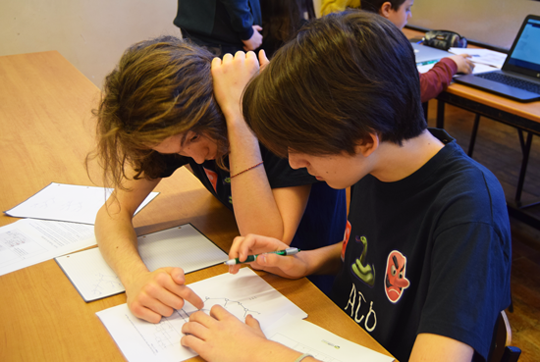Mathematical competences will be the main subject assessed in PISA 2021 and for the first time these tests will include questions to assess students’ computational thinking. PISA is a program promoted by the Organization for Economic Cooperation and Development (OECD) that every three years assesses students who complete compulsory education in participating countries with the aim of knowing the effectiveness of these countries educational systems when preparing their students to face their future.
These exams will evaluate the ability of students to solve problems, a skill that is undoubtedly essential for all areas of life – personally, academically and professionally. Taking into account the introduction of computational thinking in PISA 2021, everything points to a moment of change under the need to redefine the current educational system and think about the place that computational thinking should have in classrooms.
On the other hand, PISA 2021 will also include a survey to analyse digital knowledge and skills of the participating students. This optional questionnaire will ask students if they know how to create computer programs, identify the causes of some program errors or find the solution to a problem using algorithms. The report will also make questions for educational centres, so PISA 2021 results can help to better define the educational policies that will have to be followed over the next few years to get students ready for the working reality they will encounter when they become adults. In this sense, countries like Australia, the United Kingdom or Canada have already incorporated computational thinking in their schools’ curriculum, but there are many countries where this is not happening yet.
How can we train computational thinking? One of the best ways to do so is through programming and robotics, like we do at Codelearn after-school program. Technology is more and more present in our lives and this trend will only increase: there will be more and more difference between those who understand it and know how to communicate with it and those who are only technology consumers. There will come a time when knowing how to program will be as important as knowing how to read or write. Children and adolescents of the present will occupy in a few years jobs that have not been created yet and which will be fully related to technology. Therefore, beyond knowing certain programming languages, it is important that they have the possibility to develop their computational thinking and learn to find optimal solutions for any kind of problem.
As we have said on multiple occasions, computational thinking has many benefits that can be applied in any field and not only in the IT world. It is a set of techniques and problem-solving skills, including decomposition, pattern recognition, abstraction and algorithmic design. Working all these skills through STEAM education helps us develop other important skills such logic, creativity or innovation; skills that must be enhanced during childhood to give children the necessary tools to face very different situations throughout their lives.
Codelearn will stay attentive to the results of PISA 2021 and will continue helping schools that want to introduce computational thinking both in their classrooms and in their after-school programs.

